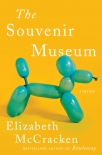An American Tragedy, Theodore Dreiser [best business books of all time txt] 📗

- Author: Theodore Dreiser
Book online «An American Tragedy, Theodore Dreiser [best business books of all time txt] 📗». Author Theodore Dreiser
“Not really? But what about the other girl?”
“That’s just the point I’m trying to make. He could plot to kill one girl and maybe even did kill her, for all I know, after seducing her, but because he was being so sculled around by his grand ideas of this other girl, he didn’t quite know what he was doing, really. Don’t you see? You know how it is with some of these young fellows of his age, and especially when they’ve never had anything much to do with girls or money, and want to be something grand.”
“You think that made him a little crazy, maybe?” put in Jephson.
“Well, it’s possible—confused, hypnotized, loony—you know—a brain storm as they say down in New York. But he certainly is still cracked over that other girl. In fact, I think most of his crying in jail is over her. He was crying, you know, when I went in to see him, sobbing as if his heart would break.”
Meditatively Belknap scratched his right ear. “But just the same, there certainly is something to this other idea—that his mind was turned by all this—that Alden girl forcing him on the one hand to marry her while the other girl was offering to marry him. I know. I was once in such a scrape myself.” And here he paused to relate that to Jephson. “By the way,” he went on, “he says we can find that item about that other couple drowning in The Times-Union of about June 18th or 19th.”
“All right,” replied Jephson, “I’ll get it.”
“What I want you to do tomorrow,” continued Belknap, “is to go over there with me and see what impression you get of him. I’ll be there to see if he tells it all to you in the same way. I want your own individual viewpoint of him.”
“You most certainly will get it,” snapped Jephson.
Belknap and Jephson proceeded the next day to visit Clyde in jail. And Jephson, after interviewing him and meditating once more on his strange story, was even then not quite able to make up his mind whether Clyde was as innocent of intending to strike Roberta as he said, or not. For if he were, how could he have swum away afterward, leaving her to drown? Decidedly it would be more difficult for a jury than for himself, even, to be convinced.
At the same time, there was that contention of Belknap’s as to the possibility of Clyde’s having been mentally upset or unbalanced at the time that he accepted The Times-Union plot and proceeded to act on it. That might be true, of course, yet personally, to Jephson at least, Clyde appeared to be wise and sane enough now. As Jephson saw him, he was harder and more cunning than Belknap was willing to believe—a cunning, modified of course, by certain soft and winning social graces for which one could hardly help liking him. However, Clyde was by no means as willing to confide in Jephson as he had been in Belknap—an attitude which did little to attract Jephson to him at first. At the same time, there was about Jephson a hard, integrated earnestness which soon convinced Clyde of his technical, if not his emotional interest. And after a while he began looking toward this younger man, even more than toward Belknap as the one who might do most for him.
“Of course, you know that those letters which Miss Alden wrote you are very strong?” began Jephson, after hearing Clyde restate his story.
“Yes, sir.”
“They’re very sad to anyone who doesn’t know all of the facts, and on that account they are likely to prejudice any jury against you, especially when they’re put alongside Miss Finchley’s letters.”
“Yes, I suppose they might,” replied Clyde, “but then, she wasn’t always like that, either. It was only after she got in trouble and I wanted her to let me go that she wrote like that.”
“I know. I know. And that’s a point we want to think about and maybe bring out, if we can. If only there were some way to keep those letters out,” he now turned to Belknap to say. Then, to Clyde, “but what I want to ask you now is this—you were close to her for something like a year, weren’t you?”
“Yes.”
“In all of that time that you were with her, or before, was she ever friendly, or maybe intimate, with any other young man anywhere—that is, that you know of?”
As Clyde could see, Jephson was not afraid, or perhaps not sufficiently sensitive, to refrain from presenting any thought or trick that seemed to him likely to provide a loophole for escape. But, far from being cheered by this suggestion, he was really shocked. What a shameful thing in connection with Roberta and her character it would be to attempt to introduce any such lie as this. He could not and would not hint at any such falsehood, and so he replied:
“No, sir. I never heard of her going with anyone else. In fact, I know she didn’t.”
“Very good! That settles that,” snapped Jephson. “I judged from her letters that what you say is true. At the same time, we must know all the facts. It might make a very great difference if there were someone else.”
And at this point Clyde could not quite make sure whether he was attempting to impress upon him the value of this as an idea or not, but just the same he decided it was





Comments (0)